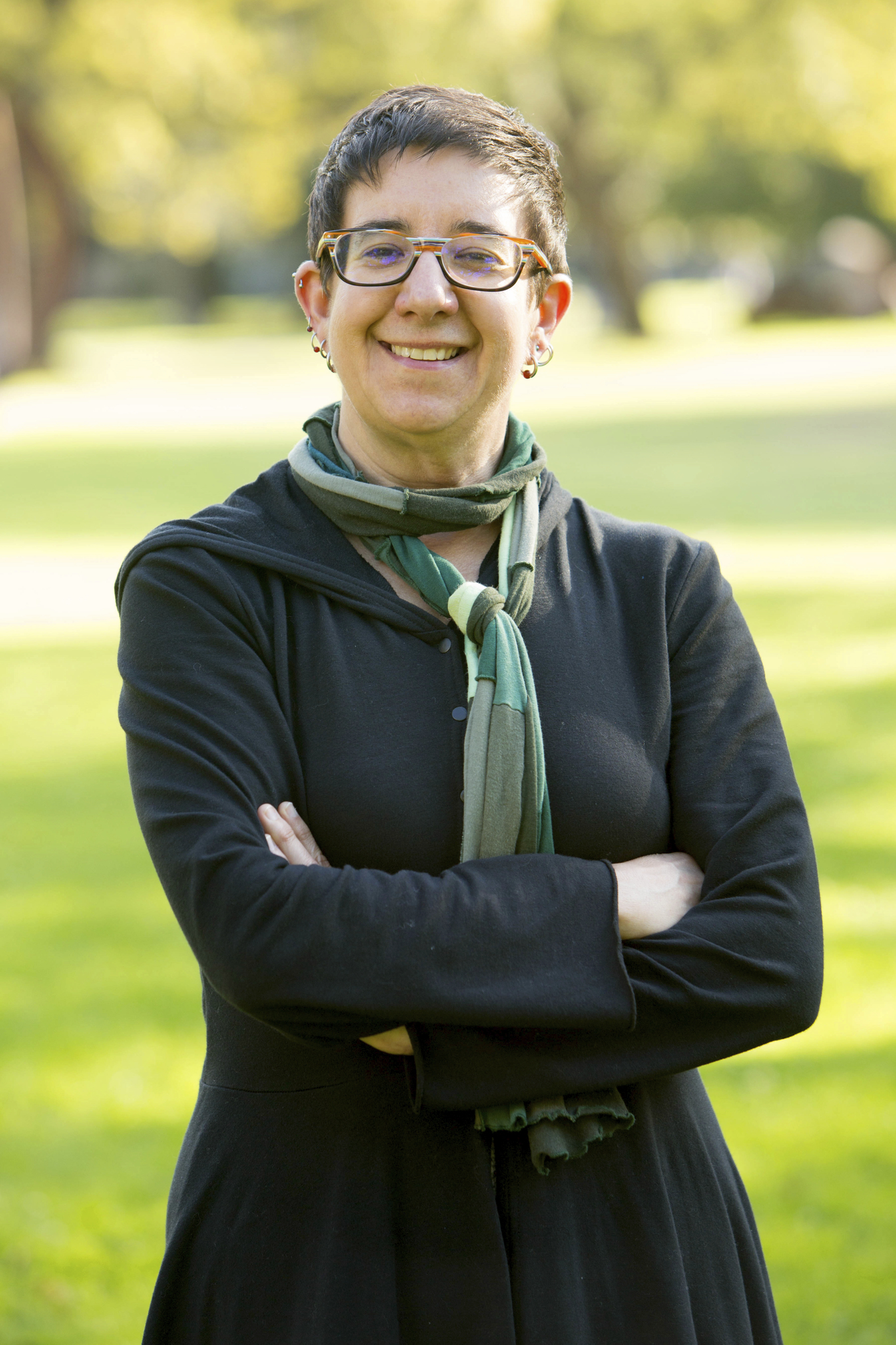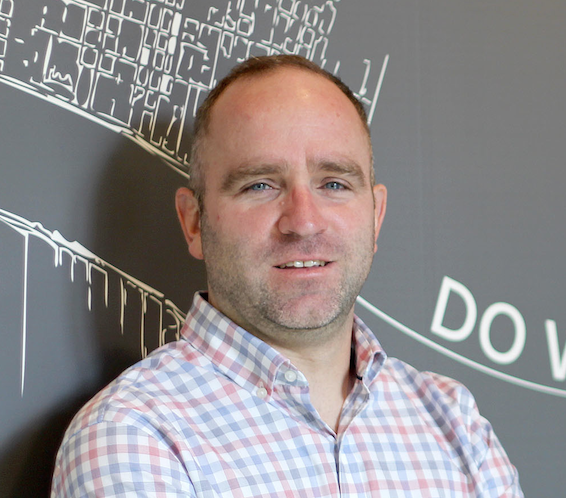Community Capacity & Resilience Building
Featured Effort: CRGC In-Person Preparedness and Resilience Survey
To meet our objectives to help communities across the Gulf Coast to more effectively understand, withstand, and overcome the multiple stressors brought on by disasters like the DWH oil spill, a recent CRGC project was the in-person survey.
The CRGC in-person survey was a cross-sectional in-person survey carried out by our research team from Tulane University in 2017, led by Dr. Amy Lesen and Dr. Reggie Ferreira. The survey was implemented in the three communities where the Consortium had placed community health workers: the Port Sulphur area in lower Plaquemines Parish, Louisiana; the Galliano area in lower Lafourche Parish, Louisiana; and the Bayou La Batre area in lower Mobile County, Alabama.
These three communities had initially been chosen for the Community Health Worker Program based on four selection criteria: (a) communities defined by geography; (b) the presence of active and effective community- or faith-based organizations operating in the community; (c) pre-existing relationships between project researchers and community organizations, activists and leaders; and (d) characteristics including resource dependent economies, presence of vulnerable populations, and significant negative impacts from Deepwater Horizon oil spill.
The 60-minute in-person survey investigated the role of social networks, risk perception, preparedness measures, individual resilience, and demographics as predictors of preparedness and resilience for future hydrocarbon (oil spill) and other disaster events among households in the Gulf of Mexico.
Between June and November 2017, 21 trained data collectors administered the IRB-approved survey (Tulane Institutional Research Board Study #997431) to 326 individuals across all three sites. The data collectors were all Tulane University graduate students and faculty, except for three data collectors in Alabama who were staff of our community partner organization there and administered the survey in Vietnamese.
The survey instrument was a product of cross-disciplinary collaboration between CRGC researchers and featured questions about participants’ social networks, images participants associate with oil spills, past disaster exposure including disasters caused by both natural and technological hazards, oil spill disaster planning and risk perception based on the Protective Action Decision Model (Lindell and Perry 2004, 2012), perceived oil spill consequences, attitudes about job retraining and relocation for work, resilience attributes based on the 10-item Connor-Davidson Resilience Scale (Connor and Davidson 2003; Campbell-Sills and Stein 2007) and participant demographics.
Related News
Fellows Participate in 2nd Module of “Planning For Resilient Gulf Communities” Executive Leadership Training
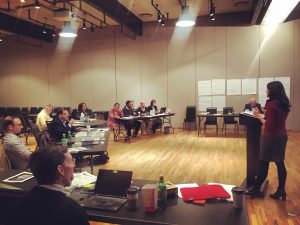 Inaugural cohort of Southeastern Louisiana Disaster Resilience Leadership Fellows participate in second module of “Planning for Resilient Communities” Executive Leadership Training.
Inaugural cohort of Southeastern Louisiana Disaster Resilience Leadership Fellows participate in second module of “Planning for Resilient Communities” Executive Leadership Training.
CRGC Students Showcase Poster Presentation on Utilizing Lay Health Workers Post-Disaster
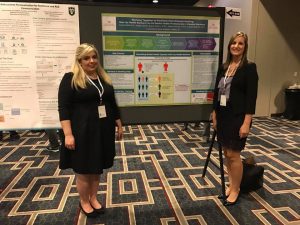 Alyssa Wood and Keagan Smith, from the University of South Alabama showcase their poster presentation at the 2017 Gulf of Mexico Oil Spill & Ecosystem Science Conference, which took place February 6-9 in New Orleans, LA.
Alyssa Wood and Keagan Smith, from the University of South Alabama showcase their poster presentation at the 2017 Gulf of Mexico Oil Spill & Ecosystem Science Conference, which took place February 6-9 in New Orleans, LA.
Local Leaders Build Capacity to Strengthen and Coordinate Resilience in Coastal Louisiana Parishes
 The first ever cohort of Southeastern Louisiana Disaster Resilience Leadership Fellows complete inaugural Executive Leadership Training, “Planning For Resilient Gulf Communities,” a five-day workshop led by Tulane University and supported by the Consortium for Resilient Gulf Communities (CRGC) to help coastal communities improve resilience to future disasters.Learn more »
The first ever cohort of Southeastern Louisiana Disaster Resilience Leadership Fellows complete inaugural Executive Leadership Training, “Planning For Resilient Gulf Communities,” a five-day workshop led by Tulane University and supported by the Consortium for Resilient Gulf Communities (CRGC) to help coastal communities improve resilience to future disasters.Learn more »Planning for Resilient Communities: Coastal Louisiana Leaders Gather to Kick-Off Executive Leadership Training
 Tulane University’s Disaster Resilience Leadership Academy is hosting the “Planning for Resilient Communities” Executive Leadership Training for a newly formed cohort of Southeastern Louisiana Disaster Resilient Leadership Fellows in a five day workshop from November 14-18th. The fellowship program is supported by the Consortium for Resilient Gulf Communities (CRGC), a multidisciplinary consortium funded by the Gulf of Mexico Research Initiative (GoMRI) to provide communities with solutions to build social, economic, and public health resilience to catastrophic oil spills.Learn more »
Tulane University’s Disaster Resilience Leadership Academy is hosting the “Planning for Resilient Communities” Executive Leadership Training for a newly formed cohort of Southeastern Louisiana Disaster Resilient Leadership Fellows in a five day workshop from November 14-18th. The fellowship program is supported by the Consortium for Resilient Gulf Communities (CRGC), a multidisciplinary consortium funded by the Gulf of Mexico Research Initiative (GoMRI) to provide communities with solutions to build social, economic, and public health resilience to catastrophic oil spills.Learn more »
CRGC Team Members Participate in Seminar on Building Resilient Communities
 Melissa Finucane, Director of CRGC, and Janel Lowman, fellow CRGC team member, participated as panelists at The Gulf Region Sea Grant programs’ oil spill science seminar, Building resilient communities: Lessons learned from the Deepwater Horizon oil spill.
Melissa Finucane, Director of CRGC, and Janel Lowman, fellow CRGC team member, participated as panelists at The Gulf Region Sea Grant programs’ oil spill science seminar, Building resilient communities: Lessons learned from the Deepwater Horizon oil spill.
CRGC Featured In GoMRI’s Summer 2016 Newsletter
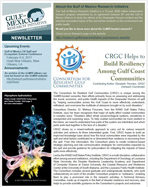 The Gulf of Mexico Research Initiative (GoMRI) features the Consortium for Resilient Gulf Communities (CRGC) as it’s cover story in its Summer 2016 Newsletter. Learn more »
The Gulf of Mexico Research Initiative (GoMRI) features the Consortium for Resilient Gulf Communities (CRGC) as it’s cover story in its Summer 2016 Newsletter. Learn more »
CRGC Holds All-Hands Meeting In Alabama, Tours Local Businesses in Bayou La Batre
 With team members spread across not only the Gulf States region, but also the entire U.S., CRGC recently held an “all-hands” meeting in Alabama to bring together its research staff, students, advisors, and community partners. The group also had the opportunity to tour local businesses in Bayou La Batre, AL.
With team members spread across not only the Gulf States region, but also the entire U.S., CRGC recently held an “all-hands” meeting in Alabama to bring together its research staff, students, advisors, and community partners. The group also had the opportunity to tour local businesses in Bayou La Batre, AL.
Ten Outstanding Education Products Six Years After Deepwater Horizon
CRGC Appoints Alabama Stakeholder Advisory Committee
 A new stakeholder advisory committee will provide CRGC researchers with diverse perspectives on the environmental, public health, social, economic, legal, and cultural landscapes of Bayou La Batre, AL, and will provide feedback and make recommendations about the existing and planned activities of the CRGC.
A new stakeholder advisory committee will provide CRGC researchers with diverse perspectives on the environmental, public health, social, economic, legal, and cultural landscapes of Bayou La Batre, AL, and will provide feedback and make recommendations about the existing and planned activities of the CRGC.
Consortium Members Meet Community Leaders in Bayou La Batre, AL
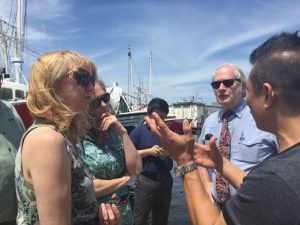 As part of the effort to build capacity for community action planning and resilience building, CRGC members from RAND Corporation and the University of South Alabama’s Coastal Resource & Resiliency Center met in Bayou La Batre—a community on the Alabama coast that is a large seafood producer for the Gulf region.
As part of the effort to build capacity for community action planning and resilience building, CRGC members from RAND Corporation and the University of South Alabama’s Coastal Resource & Resiliency Center met in Bayou La Batre—a community on the Alabama coast that is a large seafood producer for the Gulf region.


